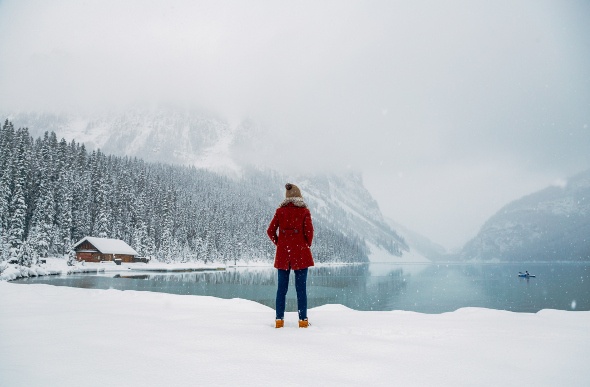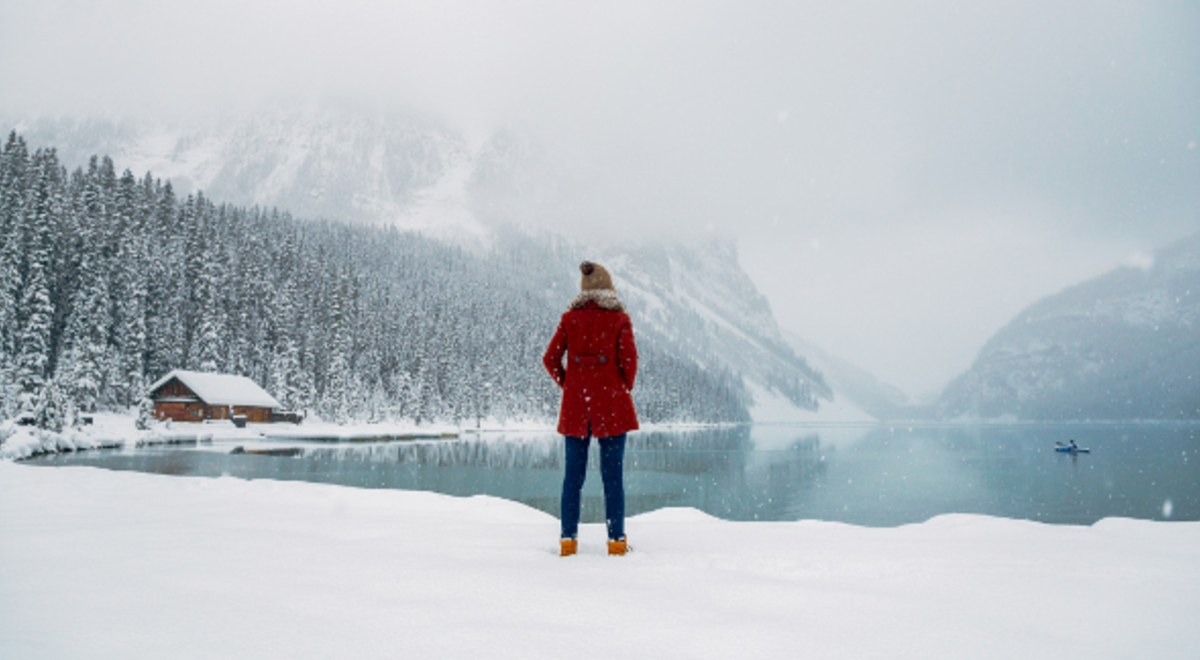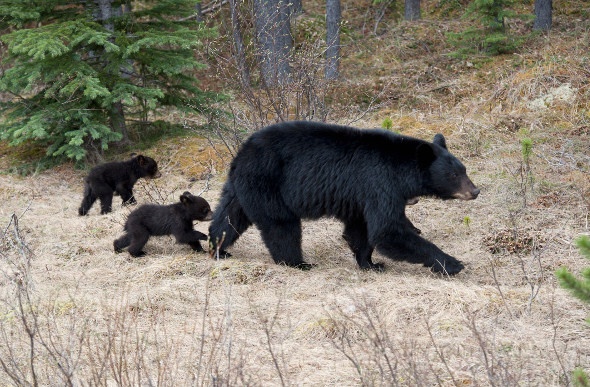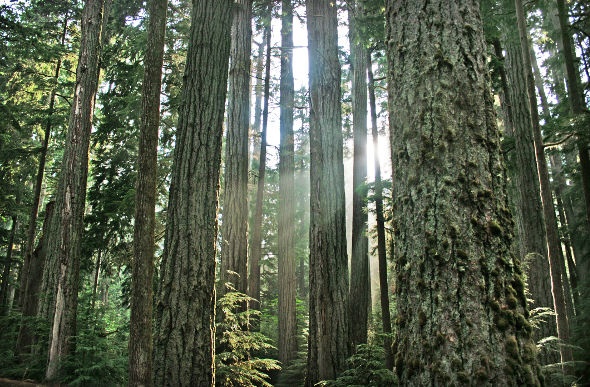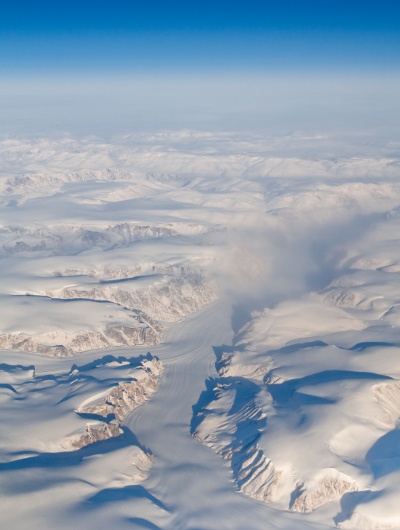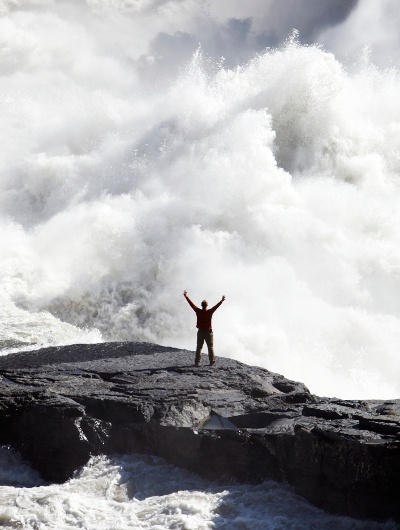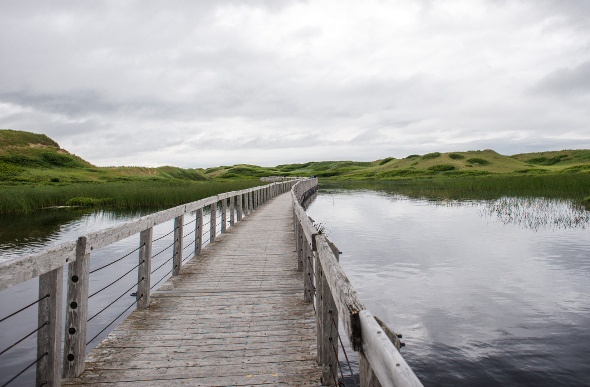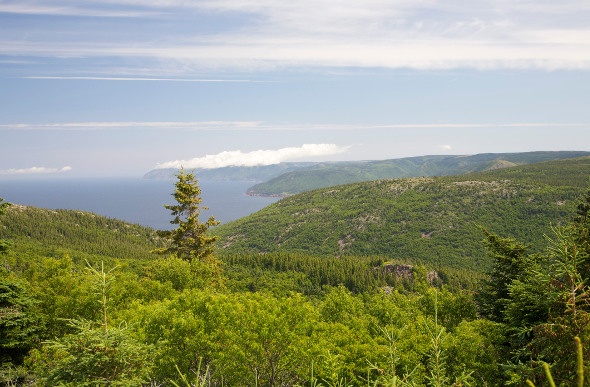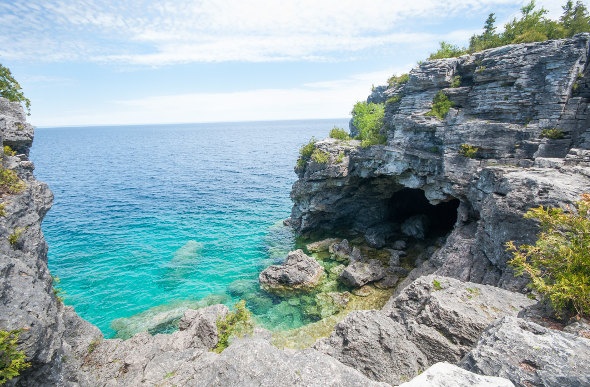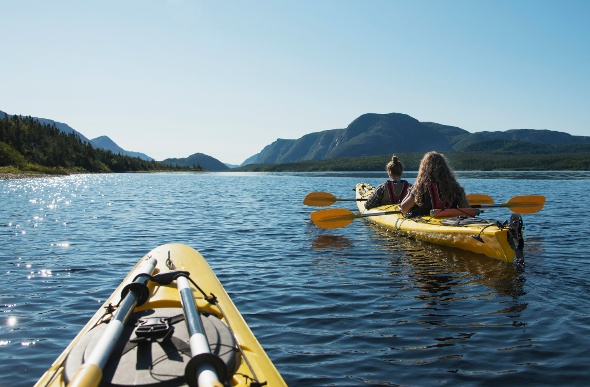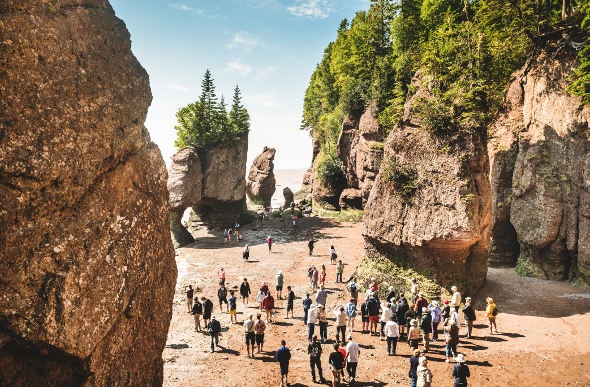Pristine mountains, majestic wildlife, sparkling lakes and frozen landscapes - you can practically inhale the crisp, clean air that Canada's vast wilderness areas is famous for. If you needed any more reason to experience The Great White North (also; not so snowy in summer), in 2017 Parks Canada is waiving national park entrance fees, which also includes a number of historic sites and marine conservation areas, as part of the celebrations for Canada 150 - the country's 150th anniversary of Confederation. There's more than 40 national parks areas to explore, so we've picked our top 10.
Summer or winter, Lake Louise is magical. (Image: Getty)
1. Banff National Park, Alberta
Canada’s first national park (established in 1883) is famous for the stunning Lake Louise. This glacial lake glows with a mesmerising aquamarine gleam you can get lost in. Lake Moraine is another Instagram-worthy lake in Banff National Park that's also known as the Valley of the Ten Peaks.
A black bear family is just some of the residents you can spot at Jasper. (Image: Getty)
2. Jasper National Park, Alberta
Jasper is the largest and most northern national park in the Canadian Rockies and is renowned for its wildlife. Ninety-seven per cent of the 11,000 square kilometres of national park is protected, so you can spy bears, caribou, elk, mountain sheep and other native critters. Star-gazers, it's also the largest Dark Sky Preserve on Earth.
The towering rainforests on Vancouver Island can make you feel very small. (Image: Getty)
3. Pacific Rim National Park Reserve, British Columbia
This ecological haven spans 50 kilometres of Vancouver Island. Located on the Pacific Coast, discover the temporate rainforest of towering conifers or explore the shoreline. Here, you can also follow the Nuu-chah-nulth Trail for an insight into this First Nations culture.
An aerial view of the vast, snow-clad Auyuittuq National Park on Barrow Island. (Image: Getty)
4. Auyuittuq National Park, Nunavut
Canada’s only national park north of the Arctic Circle is a winter wonderland of craggy peaks and shimmering glaciers that give way to deep fjords that harbour curious creatures such as the narwhal. In summer, arctic blooms dot the tundra and icy streams are illuminated in the Midnight Sun.
More outdoor experiences in Canada:
Catch the Northern Lights. The World's A Little Different In Yukon
Tracks and trails for two-wheels. 4 Ways To Get Mountain Bike Ready In British Columbia
The awe-inspiring Virginia Falls. (Image: Getty)
5. Nahanni National Park Reserve, Northwest Territories
Northwest Territories’ Virginia Falls (Nailicho) is twice the height of Niagara Falls. Another drawcard is the whitewater rapids of the South Nahanni River that is lined by four great canyons. Also hidden within Nahanni National Park are sulphuric hot springs, spruce forests and alpine tundra.
Picture-perfect Greenwich on Prince Edward Island is straight from the storybook. (Image: Getty)
6. Prince Edward Island National Park, Prince Edward Island
Beloved book Anne of Green Gables is set on Prince Edward Island (PEI), and you can visit her Victorian home at Green Gables Heritage Place as part of the Cavendish National Historic Site. Those not enamoured of the red-haired protagonist can enjoy an old-school summer camping holiday in the park.
Cape Breton abounds with rugged coastlines and hiking trails. (Image: Getty)
7. Cape Breton Highlands National Park, Nova Scotia
The world-famous Cabot Trail hugs the coastline as it winds through the Cape Breton Highlands National Park in Nova Scotia. The road trip connects fishing villages along a 300-kilometre loop that traverses different cultural heritages as well. The hiking paradise of Cape Breton Island is also home to the endangered Canada lynx.
The Grotto cave is a must-see. (Image: Getty)
8. Bruce Peninsula National Park, Ontario
The Grotto, a cave carved by waves, is one of the drawcards of ‘the Bruce’ in Ontario and is also one of the top attractions in the province. The hike to the Grotto takes around 30 minutes along the 1.6-kilometre Georgian Bay Trail, and in summer, it's a popular site for swimming.
Kayakers take to the water with Gros Morne in the distance. (Image: Getty)
9. Gros Morne National Park, Newfoundland
Newfoundland’s Gros Morne is Canada’s second-highest peak and means ‘great sombre’ in French. An UNESCO World Heritage Site, the landscape veers from beaches and bogs to alpine highlands and charming seaside villages.
Hopewell Rocks have been chiselled by the waves into intriguing shapes. (Image: Getty)
10. Fundy National Park, New Brunswick
Experience the world’s highest tides in New Brunswick’s Bay of Fundy on the Atlantic side of Canada, where the tide can rise to 16 metres - equivalent to the height of a four-storey building. At low tide, see the otherworldy rocks whittled by the mighty waves over centuries and vast mudflats that stretch over a kilometre at Alma Beach.
Visit your local Flight Centre store or call 131 600 for more advice and the latest deals on travelling to Canada.
banff-lake louise canada jasper
